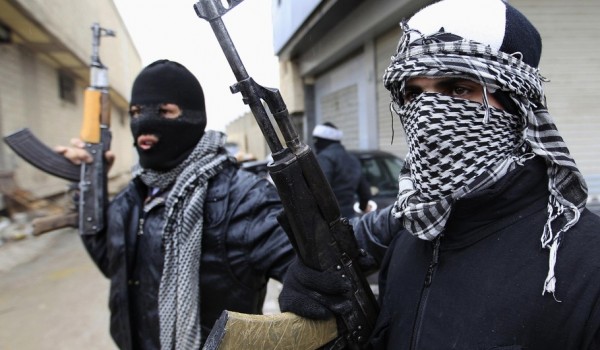Al-Qaeda in Iraq
- By Zhao Jinglun
 0 Comment(s)
0 Comment(s) Print
Print E-mail China.org.cn, January 13, 2014
E-mail China.org.cn, January 13, 2014
There was no al-Qaeda in Iraq when George W. Bush invaded it on the false pretext of Saddam Hussein's WMD and his alleged role in the 9/11 terror attacks.
|
|
|
It was the U.S. occupation of Iraq that provided al-Qaeda with fertile ground to organize and wage a guerrilla war against the invaders. |
It was the U.S. occupation of Iraq that provided al-Qaeda with fertile ground to organize and wage a guerrilla war against the invaders. Robert Pape of the University of Chicago identified 315 incidents of suicide terror strikes, the overwhelming majority of which were motivated by foreign occupation.
The Al-Qaeda presence in Iraq was initiated by Abu Musab al-Zarqawi, an Arab of Jordanian descent, who was active in Herat, Afghanistan. In 2001, he fled to northern Iraq and joined Ansar al-Islam, a militant Kurdish separatist movement, and led its Arab contingent, which was the precursor to al-Qaeda in Iraq. Not until October 2004 did Zarqawi vow allegiance to al-Qaeda.
Zarqawi was killed by a U.S. air strike on June 7, 2006. He was succeeded by Abu Ayyub al-Masri, an Egyptian-born explosive expert. It was Masri who adopted the alias Islamic State of Iraq (ISI). He was killed during a raid on his house on April 18, 2010.
The Iraqi Al-Qaeda is currently led by Abu Bakr al-Baghdadi, who is also known as Abu Du'a. The group is primarily funded by supporters in Saudi Arabia, Jordan, and Syria.
Iraqi Prime Minister Nuri al-Maliki tried to consolidate power in the wake of the U.S. withdrawal. Only days after the U.S. exit, he issued a warrant for the arrest of Vice President Tariq al-Hashemi, the top Sunni official in the Iraqi government, charging him with terrorism, and forcing him to flee. Maliki's high-handed tactics alienated much of the Sunni minority.






